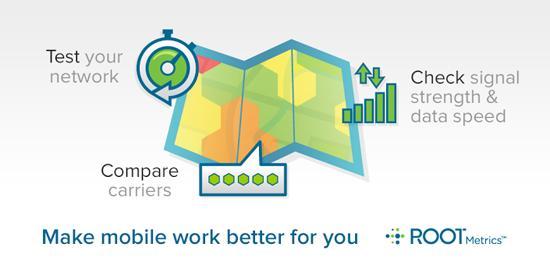
One of the hottest topics in mobile right now is 4G LTE, as all four major U.S. carriers are in the process of rolling out LTE networks. To see just how each carrier's data service stack up against one another, RootMetrics visited 77 of the top U.S. markets in the latter half of 2012 to see how the high-speed networks of AT&T, Sprint, T-Mobile and Verizon compare. RootMetrics notes that it had five benchmarks in its testing: how likely a user is to have access to a carrier's LTE network, LTE market count, LTE speeds, non-LTE speeds and how often a carrier's LTE speeds fell into the low, medium or high speed category. The research firm finished its testing with over 725,000 data samples.
So how did each carrier rate? When it comes to pure speed, AT&T claimed the title of King of the LTE Hill, averaging speeds of 18.76Mbps down (57.7Mbps max) and 9.0Mbps up (19.6Mbps max). To compare, Verizon's average speeds came out to be 14.3Mbps down and 8.5Mbps up and Sprint's was 10.3Mbps down and 4.4Mbps up. Since T-Mobile's LTE network isn't officially live yet, RootMetrics measured Magenta's 42Mbps HSPA+, which yielded average speeds of 7.3Mbps down and 1.5Mbps up.
One of the other major factors that customers consider when looking at the networks of different carriers is size, and in that category of RootMetrics' study, Verizon finished on top. The big red carrier's 4G LTE network was the only one present in all 77 of the markets visited by RootMetrics, and at the time that this report was put together on Jan. 31, 2013, Verizon's LTE service was available in 475 cities. At that time, AT&T's LTE network was in 47 of 77 markets (135 total), Sprint's coverage was in 5 of 77 markets (58 total) and T-Mobile's market count was zero. Since the test took place, AT&T has expanded its LTE coverage to 26 more of the other 77 cities tested, leaving a 4-city gap between it and Verizon. Sprint's LTE network has gone live in 5 more of the 77 test markets since the test wrapped up.
The results of this RootMetrics study are interesting to pore over, and while the best way to see how a network performs is to actually try it out for yourself, this report is something that anyone that's considering switching carriers should look over. Data is becoming increasingly important as more folks adopt smartphones and use them for downloading apps, browsing the web and communicating with others. LTE allows users to do all of that quicker than they could over a 3G connection.
As I noted before, 4G LTE is big in mobile right now, and that's a trend that'll continue through 2013. Verizon is busy filling in all of the holes of its LTE network to get the coverage matched up with its 3G network, and AT&T, Sprint and T-Mobile all have big plans for continuing to expand their LTE coverage through the year. And while AT&T's LTE service was the speediest in RootMetrics' testing and Verizon's LTE network was the largest, 2013 could be a big LTE year for Sprint and T-Mobile, as Sprint's LTE network was speedier than the carrier advertises and T-Mobile's plans for an LTE network that's backed up by HSPA+ coverage could make for a speedy one-two data attack. While waiting for all four carriers to spread out their LTE goodness to more consumers, you can find the full RootMetrics study at the link below.
Via RootMetrics